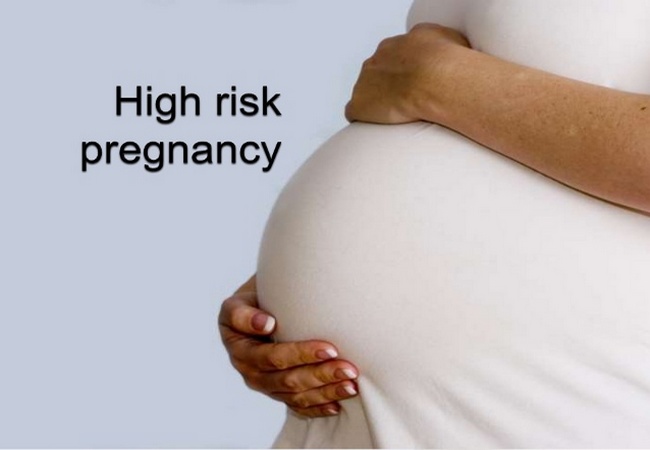What is High-Risk Pregnancy?
A pregnancy is considered high-risk when there are potential complications that could affect the mother, the baby, or both. Complications can arise before or during pregnancy. High risk pregnancy requires some advice, safety, and management to help ensure the best outcome for the mother and baby.

Factors for High Risk Pregnancy:
Complications of pregnancy are health problems that occur during pregnancy. They can involve the mother’s health, the baby’s health, or both. Some women have health problems that arise during pregnancy, and other women have health problems before they become pregnant that could lead to complications.
- Diabetes or gestational diabetes,
- Cancer,
- Kidney disease such as CKD, pyelonephritis,
- Heart problems such as high blood pressure, heart valve problems,
- Blood disorders such as sickle cell disease,
- Lung disease such as asthma,
- Autoimmune disease such as lupus, rheumatoid arthritis,
- Problematic previous pregnancies such as preterm labor, previous C-section, stillbirth, multifetal pregnancy, post-term delivery,
- Epilepsy,
- Preeclampsia or Seizures ( Eclampsia),
- A genetic problem such as Down Syndrome,
- Use of alcohol or illegal drugs,
- STD such as HIV( human immune deficiency virus) AIDS, Syphilis,
- Infection such as Cytomegalovirus, Chickenpox, Rubella, Toxoplasmosis,
- Certain medication such as Lithium, Phenytoin, Valproic acid or Carbamazepine,
- Overweight or Underweight,
- Height shorter than 5 feet,
- Having had fertility problems,
- Underage 17 or over age 35,
- Placenta previa,
- HELLP syndrome,
- Fetal abnormal position such as breech position,
- Polyhydramnios or Oligohydramnios,
- Abnormal structure of cervix or uterus such as cervical insufficiency, uterine fibroids,
- Rh incompatibility that required a blood transfusion to the fetus,
- Thyroid problem.
Common Complication of High Risk Pregnancy:
Pregnancy is a period that has mixed feelings, emotions, and anxieties involved. The women want to avoid all possible things that can add complications during pregnancy. There are a few advice and activities that can help to avoid complications in pregnancy. These include
- Take at least 400 micrograms of folic acid, vitamin B, E, C. Beginning before and continuing through pregnancy that prevents fetal birth defects.
- Take light and frequent meals.
- Take in at least 2,400 calories every day.
- Eat a healthy diet that includes protein, milk and milk products, fruit, vegetables and maintain proper weight.
- Eat a well-balanced diet that includes lots of calcium and magnesium.
- Drink lots of fluid.
- Avoid eating refrigerated or leftover food items.
- Take a high-fiber diet that’s low in sugars.
- Get proper immunization against infectious diseases.
- Maintain an active lifestyle with regular exercises such as walking, swimming, riding a stationary bike, and yoga.
- Perform regular physical activity, unless advised otherwise by a doctor.
- Avoid cigarettes, alcohol, and drugs.
- Stay away from people who have colds and other infections.
- Avoid taking any medication without consulting a doctor.
- Take all safety measures while working or roaming about at home or workplace. Avoid rush areas, standing or sitting for very long hours, heavy lifting, and so on.
- Get plenty of rest and sleep whenever possible.
- Avoid lifting heavy weights, wearing high-heeled shoes.
More questions related to this topic:
- What is considered a high risk pregnancy?
- At what age is considered a high risk pregnancy?
- How do you know if your high risk pregnancy?
- Mention risk factors for complications during pregnancy.
- Mention about high-risk pregnancy | conditions & treatments.
- Mention high risk complications during pregnancy.
- Mention complications during pregnancy first, second, and third trimester.

Maria Khatun Mona is a Founder and Editor of Nursing Exercise Blog. She is a Nursing and Midwifery Expert. Currently she is working as a “Senior Staff Nurse” at “Dinajpur Medical College Hospital”, Bangladesh. She has great passion in writing different articles on Nursing and Midwifery. Mail her at “maria.mona023@gmail.com”
